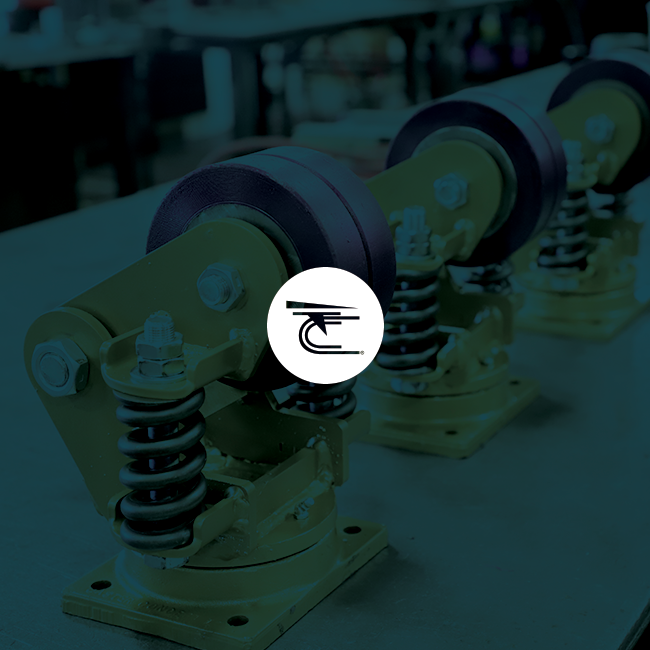

When it comes to determining the best tread material for a specific industrial caster or wheel application, the best decisions are made when there is an understanding of the “trade-offs” involved with a material’s characteristics. Whether rubber or steel, wrought iron or polyurethane, it’s critical to understand the balance between material load capacity and floor protection.
Generally speaking, the heavier the desired caster load capacity, the harder the wheel – however, with the harder the wheel comes increased concerns of more potential abuse to your floors.
Wheels and casters with softer treads, like those made out of rubber, will carry lighter loads and are more resilient, but offer the most protection to your floors. These types of casters and wheels can handle small obstructions, like metal shavings, but may be too light-duty for more rugged applications.
In our experience, perhaps the best compromise between load capacity and floor protection is offered by polyurethane treads. There’s a wide variety of ways that polyurethane can be engineered to ensure that your casters and wheels are both ergonomic and durable. Here’s a guide to the different grades:
Note: Polyurethane components TDI (toluene diisocyanate), MDI (methylene diphenyl diisocyanate) and TODI (dimethylbiphenyl diisocyanate) are noted for their flexibility (TDI), rigidity (MDI), and thermal properties (TODI). All types of poly wheels are available in thick (1”) or thin (.5”) treads.
The more consideration you can articulate regarding your wheel material environment, obviously, the better off you will be in selecting the right material for your industrial heavy duty wheels and casters.
Want more insight into the pros and cons of various caster wheel materials? Please contact 517-680-7950 or email customercentral@casterconcepts.com.